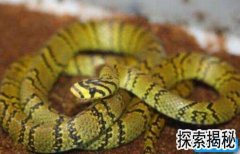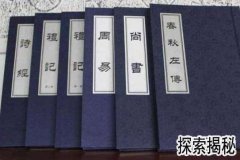什么是非限制性定语从句
非限制性定语从句是先行词的附加说明,去掉了也不会影响主句的意思,它与主句之间通常用逗号分开。非限定性定语从句在句既可以修饰先行词,也可用修饰前面的主句。它在句子中是一个独立成分,不受主句的限制,把从句去掉之后主句仍然成立,这也是它会叫做非限定性定语从句。非限制性定语从句与先行词以及主句之间的关系不甚紧密,因而通常要用逗号与主句分隔开。非限制性定语从句例句1、Have you seen the film Titanic, whose leading actor is world famous.你看过“泰坦尼克号”这部电影吗,它的男主演可是世界闻名的。2、My friend, who has served on the International Olympic Committee all his life, is retiring next month.我有位朋友,他一辈子服务于国际奥林匹克委员会,下个月就要退休了。
非限制性定语从句
非限制性定语从句 1 非限制性定语从句: 即非限定性定语从句,起补充说明作用,缺少也不会影响全句的理解,在非限定性定语从句的前面往往有逗号隔开,如若将非限定性定语从句放在句子中间,其前后都需要用逗号隔开。由as, which 引导的非限定性定语从句,as和which可代整个主句,相当于and this或and that。As一般放在句首,which在句中。 使用规则及注意事项: 1、which引导的非限定性定语从句是用来说明前面整个句子的情况或主句的某一部分。 2、as有时也可用作关系代词 。 as引导非限制性定语从句,若as在从句中作主语,其引导的句子可以放在句首,也可以放在句中。但which引导的非限制性定语从句只能放句中。 例句: As is reported in the newspaper, some artistic treasures (艺术珍品) will be on show at the exhibition on the weekend. 3、在非限定性定语从句中,关系词不能用that。 限制性定语从句和非限制性定语从句有四大区别: 1在句中作用不同 限制性定语从句对被修饰的先行词有限定制约作用,使该词的含义更具体,更明确。限制性定语从句不能被省略,否则句意就不完整。 非限制性定语从句与先行词关系不十分密切,只是对其作一些附加说明,不起限定制约作用。 如果将非限制性定语从句省去,主句的意义仍然完整。 2外在表现形式不同 限制性定语从句因与先行词关系密切,所以不可以用逗号将其与主句隔开;而非限制性定语从句与先行词关系不十分密切,所以可用逗号将其与主句隔开。 例1. Do you remember the girl who taught us English? 你还记得教我们英语的那个女孩吗? 例2. Clock is a kind of instrument which can tell people time. 钟是一种能够告诉人们时间的仪器。 例3. This is the place where he used to live. 这就是他过去居住的地方。 例4. Mr. Zhang, who came to see me yesterday, is an old friend of mine. 张先生昨天来看我,他是我的一位朋友。 例5. We walked down the village street, where they were having market day. 我们沿着村里的大街向前走去,村民们正在那里赶集。 析:在前三个例句中,定语从句与先行词关系密切,为限制性定语从句,不可用逗号将其与主句隔开。在后两个例句中,定语从句与先行词关系不密切,为非限制性定语从句,可用逗号将其与主句隔开。 3先行词内容有所不同 大多数限制性和非限制性定语从句的先行词往往为某一个词或短语,而特殊情况下非限制性定语从句的先行词也可为整个主句,此时非限制性定语从句常由 which 引导。 例 1. A middle-aged woman killed her husband, which frightened me very much. 一个中年女子杀害了自己的丈夫,这令我十分恐惧。 析:由语境可知,令“我”恐惧的内容应为“中年女子杀害了自己的丈夫”这整个一件事,因此先行词为整个主句,此时应由 which 引导定语从句。 例 2. A five-year-old boy can speak two foreign languages, which surprises all the people present. 一个五岁男孩会讲两门外语,这令所有在场的人感到非常惊讶。 析:由语境可知,令所有在场的人感到惊讶的内容是“一个五岁男孩会讲两门外语”这整个一件事,因此先行词为整个主句,此时应由 which 引导非限制性定语从句。 4关系词的使用情况有所不同 ①that 不可用于引导非限制性定语从句所有关系代词和关系副词均可引导限制性定语从句,大多数关系代词和关系副词可引导非限制性定语从句,但that不可。 例 1. 他送给他母亲一台彩电作为生日礼物,这使她非常高兴。 误:He gave his mother a color TV set for her birthday, that pleased her a lot. 正:He gave his mother a color TV set for her birthday, which pleased her a lot. 例 2. 他没通过这次考试,令我很失望。 误: He didn't pass the exam, that disappointed me. 正: He didn't pass the exam, which disappointed me. 值得注意的是,不少同学误认为只有 which 才能引导非限制性定语从句,这个观点是不正确的。 使用非限制性定语从句时,如果先行词指人,则用 who ,whose 引导非限制性定语从句;先行词指物可用 which 引导非限制性定语从句;先行词表时间或地点且在从句中作时间状语或地点状语时,可用 when , where 引导非限制性定语从句。 例1. We'll graduate in July, when we will be free. 我们将于七月份毕业,到那时我们就自由了。 例 2. Last Sunday they reached Nanjing, where a conference was to be held. 他们上周日到达南京,有个会议要在那里举行。 ②关系代词替代情况不同 关系代词 whom 在限制性定语从句中作宾语时可用 who 代替 whom ,但 whom 在非限制性定语从句中作宾语时不可用 who 来代替。 例 1. This is the girl whom I met in the street.这是我在街上遇到的那个女孩。 析:先行词 the girl 在限制性定语从句中作宾语,可用 who 代替 whom. 例 2. A young man had a new girl friend, whom he wanted to impress. 一个年轻的小伙子新交了一个女朋友,他想给她留下深刻的印象。 析:先行词 a new girl friend 在非限制性定语从句中作宾语,不可用 who 代替 whom. 在限制性定语从句中,先行词指人时可用 that 代替 who/ whom ,但在非限制性定语从句中先行词指人时,不可用 that 代替 who/whom . 例:她有一个姐姐,她是教师。 误:She has a sister, that is a teacher. 正:She has a sister, who is teacher. ③关系代词省略情况不同 关系代词在限制性定语从句中作宾语时可以省去,非限制性定语从句的所有关系词均不可省。 例 1. This is the book (which/that) he lost yesterday. 这就是他昨天丢的那本书。 析: 先行词 the book 在限制性定语从句中作宾语,关系代词 which 或 that 可以省略。 例 2. The book, which he lost yesterday, has been found. 他昨天丢了这本书,但现在已找到了。 析:先行词 the book 在非限制性定语从句中作宾语,关系代词 which 不可省。 延伸阅读:非限制定语从句的考点 考点一:和限制性定语从句的比较。 区别1:形式不同 限定性定语从句和主句之间不用逗号隔开,而非限定性定语从句与主句之间通常有逗号隔开。 区别2:功能不同 限定性定从对先行词进行修饰、限制和识别,如果去掉,就会造成句意不完整或概念不清; 非限定性定从对先行词补充说明,如果省略,句意仍然清楚、完整。 People who take physical exercise live longer. His daughter, who is in Boston now, is coming home next week. 区别3:翻译不同 限定性定语从句翻译在它所修饰的先行词之前;非限定性定语从句与主句分开。 He is the man whose car was stolen. 他就是汽车被窃的那个人。 I’ve invited Jim, who lives in the next flat. 我邀请了吉姆,他就住在隔壁。 区别4:含义不同 I have a sister who is a doctor. 我有一个当医生的姐姐。(姐姐不止一个) I have a sister, who is a doctor. 我有一个姐姐,她是当医生的。(只有一个姐姐) 区别5:先行词不同 限定性定从的先行词只能是名词或代词; 非限定性定从的先行词则可以是名词或代词, 也可以是短语或主句。 Peter drove too fast, which was dangerous. 彼得开车很快,这是很危险的。 (which指drive too fast) He changed his mind, which made me very angry. 他改变了主意,这使我很生气。 (which指整个主句) 区别6:关系词不同 that和why不能引导非限制性定从; 在非限制性定从中,关系词一律不省略。 考点二:as引导非限定性定语从句, 指代主句整个句子,可以放在主句之前, 译为“正如”。 As we all know, he studies very hard. As is known to all, he is the best student in our class. 考点三:引导词前的介词 So far only two people have seen this house, of whom neither wants to buy it. So far only two people have seen this house, neither of whom wants to buy it. 非限制性定语从句 2 一、 限制性定语从句 1.关系代词that既可代表事物也可代表人,which只代表事物,它们在从句 中作主语或宾语。在从句中作宾语时常可省略。 I was the only person in our office that was invited to the palace ball. The present that(which)I received last week was from my sister. This is a book which is about space rocket technology. 2.关系代词who和whom引导的从句用来修饰人,分别作从句中的主语和宾语,whom作宾语时,要注意它可以作动词的宾语也可以作介词的宾语。如: This is the man who helped me. The doctor whom you are looking for is in the room. 3. whose是关系代词,修饰名词,作定语,相当于who和whom的所有格,既可以修饰人又可以修饰物。如: Do you know the student whose name is Wang Fei? We lived in a room whose window opens to the west. 4. where是关系副词,用来引导表示地点的定语从句,where在从句中作状语。如: At last we arrived at a small village where we’ll work for a week. 5. when是关系副词,引导定语从句表示时间,在从句中作状语。 注意,表示时间的the time,the day, the moment作先行词,其定语从句引导词有四种情况:1)when,2) in/ on which3) that4)省略。如: By the time you arrive in London, we will have stayed there for two weeks. I still remember the day I met her. Each time he goes to business trip, he brings a lot of living necessities. 6. why是关系副词,引导定语从句表示原因,在从句中作状语。 7.关系副词when, where, why可以用“介词+关系代词”结构代替,但有两点要注意: 1)在“介词+关系代词”结构中,不能用that。关系代词指物用which,指人时用whom,不用who;且which和whom在这个结构中不能省略。如: The plane in which we flew to Canada is very comfortable. (正确) The plane in that we flew in to Canada is very comfortable.(错误) 2)在使用介词+关系代词引导的定语从句时,含有介词的动词短语一般不拆开使用,如:look for, look after, take care of等。如“This is the watch which/that I am looking for.”不可以改为“This is the watch for which I am looking.” 二、非限制性定语从句 非限制性定语从句的作用是对所修饰的成分作进一步说明,通常和主句间用逗号隔开,将从句拿掉后其他部分仍可成立 1. which引导的非限定性定语从句,可用来说明前面整个句子的`情况或主句的某一部分。如: She heard a terrible noise,which brought her heart into her mouth. David studies hard and is ready to help others,which is what his parents expect. 2.在非限制性定语从句中,不能用that,而用who, whom代表人,用which或as代表事物。关系代词作定语时用whose。如: He loved his parents deeply, both of whom are very kind to him. In the basket there are quite many apples, which have gone bad. There are forty students in our class in all, most of whom are from big cities.限 His mother, who loves him very much, is strict with him. China, which was founded in 1949, is becoming more and more powerful. 限制性定语从句和非限制性定语从句有时表达的意义不同,试分析下面两个句子的差别: His brother who is now a doctor always encourages him to go to college. 他那当医生的哥哥常鼓励他要考上大学。(他还有其他的哥哥) His brother, who is now a doctor, always encourages him to go to college. 他的哥哥是当医生的,常鼓励他要考上大学。(他只有一个哥哥) 3. as和which引导非限制性定语从句 as和which引导非限制性定语从句,有相同之处也有不同之处。具体情况是: 1)As和which都可以在定语从句中做主语或者宾语,代表前面整个句子。 He married her, as/which was natural. He was honest, as/which we can see. As we know, smoking is harmful to one's health. The sun heats the earth, which is very important to us. As we know, smoking is harmful to one’s health. As is know, smoking is harmful to one’s health. 2)as引导非限制性定语从句,可放在主句之前,或者主句之后,甚至可以 切割一个主句;which引导的非限制性定语从句只能放在主句之后。 As is known to all, China is a developing country. He is from the south, as we can see from his accent. John, as you know, is a famous writer. He has been to Paris more than several times, which I don’t believe.注意:当主句和从句存在逻辑上的因果关系时,常用which Tom was always late for school, which made his teacher angry. 3)the same… as;such…as是固定结构,意思是“和……一样……。”如: I have got into the same trouble as he (has). I have never heard such a story as he tells. He is not such a fool as he looks. This is the same book as I lost last week. 注意:当先行次由the same修饰时,偶尔也用that引导定语从句,但是和由as所引导的定语从句意思不同。如: She wore the same dress that she wore at Mary’s wedding. 她穿着她在玛丽婚礼上穿过的一条裙子。 She wore the same dress as her young sister wore. 她穿着和她妹妹所穿的一样的裙子。 语法专项练习 单项填空 1. The soldier ran to the building, and ____flew a flag. A. on the top of whichB. on the top of whom C. on the top of itD. which 2. When the same man ____murdered the old lady entered the hotel once more, the waiter immediately phoned the police. A. asB. thatC. whichD. whom 3. He wore, ____was very common at the time, a black jacket. A. thatB. whichC. itD. what 4. Was it in the room ____Mr. Johnson lived ____the exhibition was held? A. that; thatB. where; thatC. where; whereD. that; where 5. ____, the population of China is the largest in the world. A. It is known thatB. As is well known C. Which is well knownD. We all know that 6. This is the very reason____ he gave me. A. thatB. whyC. for whichD. which 7. He arrived in New York in 1949, ____, some time later, he became a writer. A. whenB. whereC. thatD. which 8. They’re talking about the newly opened market, ____you get all ____you need. A. in which; whichB. where; thatC. where; whichD. which; that 9. She heard a terrible noise, ____brought her heart into her mouth. A. itB. whichC. thisD. that 10. I said nothing, ____made her angry. A. whichB. whatC. /D. that 11. I shall never forget the time ____the blacks and whites were fighting side by side. A. whenB. thatC. /D. A, B and C 12. He has three sons, ____are doctors. A. two of whomB. both of whomC. all of themD. each of them 13. He tore up my photo, and____ made me angry. A. thatB. whatC. whichD. who 14. I still remember the sitting-room____ my mother and I sat in last year. A. whereB. in whichC. thatD. to which 15. The day we looked forward to ____. A. comeB. comingC. having comeD. has come 答案 1. C。由于and的存在,这是并列句,而不是非限制性定语从句,排除A. 2. B。这里the same修饰man,其后只能用能代表人的关系代词that引导定语从句;whom是宾格,这里引导词要在从句中作主语,故不能用。 3. B。which引导一个非限制性定语从句,which所代表的是整个主句的意思,为了强调从句而提前了。 4. B。识别强调句型不难,但极有可能在第一个空填that,而误选D。其实被强调的部分还含有一个定语从句,修饰room. 5. B。只有as引导的非限制性定语从句可位于主句之前,排除C;若去掉句中的逗号,A项则可构成含有主语从句的复合句,D项则可构成含有宾语从句的复合句。 6. A。强干扰项是B.这里不选why,是因为定语从句缺的是宾语,故用关系代词that.试比较:This is the reason why he gave me so much money;先行词已被very一类的词修饰过了,其后定语从句不用which引导,故亦排除D. 7. B。强干扰项是A.想当然地认为定语从句先行词是时间,事实上,这个非限制性定语从句所修饰的先行词是地点New York,被介词结构分隔了。 8. B。where引导非限制性定语从句,在该定语从句中,不定代词all又带that引导的限制性定语从句。 9. B。从句子结构看,这是个主从复合句,故不用it和this;引导非限制性定语从句不用that. 10. A。如果只想当然地认为nothing是不定代词,其后的定语从句要用that引导,就错了。这里是一个非限制性定语从句,应该用which引导,并且which所代表的是整个主句的意思。 11. D。英语中少数几个与时间有关的名词,如the time, the day, the moment作先行词,所带定语从句的引导词可用that代替when,也可以省略。 12. A。如果看出这是个定语从句,C、D很容易排除。Both of whom中的whom指两个,数量是2/2;two of whom, whom指三人,数量是2/3. 13. A。强干扰项是C,因为有and,这是并列句,不是非限制性定语从句。这里that是指示代词,作主语。 14. C。如果错误地把后面的介词in理解为in last year,可能误选A、B.事实上,in与前边的关系代词that引导定语从句。Last year是名词词组作时间状语,不加冠词。 15. D。这里“(that/which) we looked forward to”是修饰the day的定语从句;to的宾语是省略了的引导词。
什么叫非限制性定语从句
非限制性定语从句主要起补充说明作用,从句与主句之间往往有逗号隔开,独立存在,不会影响整个句子的意思。
1.who引导的非限制性定语从句
who引导的非限定性定语从句在句中作从句的主语。
eg. Our guide,who was a French Canadian,was an excellent cook.
2. whom引导的非限制性定语从句
关系代词whom用于指人,在句中作动词宾语和介词宾语,作介词宾语时,介词可位于句末。
eg.Peter, whom you met in London, is now back in Paris.
3.whose引导的非限制性定语从句
whose是关系代词who的所有格形式,在从句中作定语。whose通常指人,也可指动物或无生命的事物。
eg.The boy, whose hat is red, studies very hard.
4.when引导的非限制性定语从句
关系副词when在非限制性定语从句中作时间状语,指代主句中表示时间的词语。
eg.He will come here yesterday, when he will be free.
5.where引导的非限制性定语从句关系
副词where在非限制性定语从句中作地点状语,指代主句中表示地点的词语。
eg.They went back to London,where was their hometown.
非限定性定语从句例句
非限定性定语从句例句:1、who引导的非限制性定语从句例句Our guide,who was a French Canadian,was an excellent cook.我们的向导,一个法裔加拿大人,擅长于烹调。2、whom引导的非限制性定语从句例句关系代词whom用于指人,在句中作动词宾语和介词宾语,作介词宾语时,介词可位于句末。如:Peter,whom you mey in Londonis now back in Paris彼得现在回巴黎了,你在伦敦见过他。3、whose引导的非限制性定语从句例句whose是关系代词who的所有格形式,在从句中作定语。whose通常指人,也可指动物或无生命的事物。如:The boy, whose father is an engineerstudies very hard.那位小男孩学习很努力,他的父亲是位工程师。4、when引导的非限制性定语从句例句关系副词when在非限制性定语从句中作时间状语,指代主句中表示时间的词语。如:He will put off the picnic until May 1stwhen he will be free.他将把郊游推迟到5月1号,那时他将有空。5、where引导的'非限制性定语从句例句关系副词where在非限制性定语从句中作地点状语,指代主句中表示地点的词语。如:They went to London,where they lived for six months.他们去了伦敦,在那呆了六个月的时间。
【语法总结】非限定性定语从句
非限定性定语从句的作用是对所修饰的成分作进一步说明(注:通常和主句间用逗号隔开,不受主句句子结构的影响,将从句拿掉后其他部分仍可成立) 【限制性定语从句与非限制性定语从句的六点区别】 限定性定语从句 的主句和从句之间 不用逗号隔开 ,口语中使用时也不停顿;而 非限定性定语从句 与主句之间通常 有逗号隔开 ,口语中使用时 有停顿。 限定性定语从句 用于 对先行词的意义 进行 修饰、限制和识别 ,如果 去掉 ,就会造成 句意不完整 或 概念不清 ;而 非限定性定语从句 用于对先行词起 补充说明 作用,如果 省略 ,句意 仍然清楚、完整 。如: People who take physical exercise live longer. 进行体育锻炼的人活得长些。 (若把从句去掉句子就失去意义) His daughter, who is in Boston now, is coming home next week. 他女儿现在 在波士顿,下星期回来。(若把从句去句子意义仍然完整) 在翻译定语从句时,一般把限定性定语从句翻译在它所修饰的先行词之前,即『从句➕的➕先行词』;而把非限定性定语从句主句和从句分开翻译。如: He is the man whose car was stolen. 他就是汽车被窃的那个人。 I’ve invited Jim, who lives in the next flat. 我邀请了吉姆,他就住在隔壁。 比较下面的两个句子: I have a sister who is a doctor. 我有一个医生的姐姐。(姐姐不止一个) I have a sister, who is a doctor. 我有一个姐姐,她是当医生的。(只有一个姐姐) 限定性定语从句 的 先行词 只能是 名词或代词 ,而 非限定性定语从句 的先行词则可以是 名词或代词 ,也可以是 短语或句子 ;另外, 当先行词为专有名词或其他具有独一无二性的普通名词时,通常要用非限制性定语从句,而不用限制性定语从句 。如: Peter drove too fast, which was dangerous. 彼得开车很快,这是很危险的。 (which 指 drive too fast) He changed his mind, which made me very angry. 他改变了主意,这使我很 生气。(which 指整个主句) 关系词 that 和 why 可用于限制性定语从句中,通常不用于非限制性定语从句; 另外,在限制性定语从句中,关系词有时可以省略,而在非限制性定语从句中关系词一律不省略。
什么是非限定性定语从句?
能够引导非限制性定语从句的连接词有:which,who,whom,where,when,as等,其中最常见的就是which和as。as, which 引导的非限定性定语从句由as,which 引导的非限定性定语从句,as和which可代整个主句,相当于and this或and that。As一般放在句首,which在句中。扩展资料:as引出非限定性定语从句时,代替整个主句,对其进行说明但通常用于像as we all know, as it is known, as is known to all, as it is, as is said above, as always mentioned above, as is usual, as is often the case, as is reported in the newspaper等句式中。as在非限定性定语从句中作主语、宾语,且引出的从句位置比较灵活,可位于句首或句末,也可置于主句中间。通常均由逗号将其与主句隔开。as有“正如……, 就像……”之意。
关于 非限定性定语从句
分类: 教育/科学 >> 外语学习
问题描述:
什么是非限定性定语从句,它与限定性定语从句在表意上有事么区别,什么时候用非限,有什么关于它的知识。
给回答详细者额外加分
解析:
限制性定语从句与非限制性定语从句
1.限制性定语从句说明先行词的情况,对先行词起限定作用,与先行词关系十分密切,不可用逗号隔开,也不可省略,否则全句意义就不完整。如:
This is the telegram which he refers to.
Is there anything (that) I can do for you?
2.非限制性定语从句只是对先行词作补充说明,没有限定作用,它与先行词的关系比较松散,因而不是关键性的,如果省略,原句的意义仍然完整。这种从句在朗读时要有停顿,在文字中通常用逗号与主句隔开。如:
This note was left by Tom, who was here a moment ago.
As a boy, he was always making things, most of which were electric.
引导非限制性定语从句的关系词有:who, whom, whose, which, when 和 where,不可以用that和why。
另外,非限制性定语从句从意义上讲,相当于一个并列句,在口语中使用并不普遍,在日常生活中,人们通常用并列句或简单句来表达。如:
I told the story to John, who later did it to his brother.
= I told the story to John, and he later told it to his brother.
Yesterday I happened to see John, who was eager to have a talk with you.
= Yesterday I happened to see John and he was eager to have a talk with you.
3.两种定语从句的内涵不同,限制性定语从句具有涉他性,而非限制性定语从句具有 唯一性,这在理解和翻译时应特别注意。试比较:
All the books there, which have beautiful pictures in them, were written by him.
All the books there that have beautiful pictures in them were written by him.
His brother, who is eighteen years old, is a PLA man. (只有一个)
His brother who is a PLA man is eighteen years old. (不止一个)
4.有时,非限制性定语从句所修饰的不是某一个词,而是整个主句或是主句中的一个部分,这时一般采用which或as来引导。如:
He passed the exam, which/as he hoped he would.
注:(1)as引导的从句可以放在主句之前,而which引导的从句只能放在主句之后。
They are hollow, which makes them very light.
As is known to all, Taiwan is a part of China.
(2)从意义上讲,which指前面主句的内容;而as指代的是作为一般人都知道的常
识性的东西,因此常译成“就象… …那样”。
(3)如果定语从句的内容对主句的内容起消极作用,则用which,而不用as,如:
She stole her friend’s money, which was disgraceful.
He tore up my photo, which upset me.
5.在正式文体中,以the way为先行词的限制性定语从句通常以in which或 that 引导,如:
The way in which you answered the questions was admirable.
但在非正式文体中,人们通常省略in which或 that :
The way (in which) he spoke to us was suspicious.
I don’t like the way (that) you laugh at her.
什么叫非限制定语从句?
分类: 教育/科学 >> 外语学习
解析:
非限制性定语从句只是对主句内容,或先行词的补充、解释或附加说明。主句与先行词或从句之间一般用逗号分开,常常单独翻译。没有它,主句意思仍然完整。引导非限制性定语从句的关系代词有as,which,who, whom,whose等,作定语从句的主语、宾语、表语及定语。关系副词有when,where等,作定语从句的状语。关系代词和关系副词在定语从句中一般不能省。
一、as引导非限制性定语从句时,可以代主句的全部或部分内容。常表说话人关于说话的依据、态度、评论、看法等。有“正如、像”等意思。定语从句可以置主句句首、句中或句末。as后常接expect,know,report,say,see等动词的主、被动语态句。
1. ____is known to everybody,the moon travels round the earth once every month.
A.It B.As C.That D.What
2.Mike,as we expected,attended the meeting.像我们所期望的那样,迈克参加了会议。
3.He wasn't unconsicious,as could be judged from his eyes.他并未失去知觉,这从他的眼神可以判断出来。
二、which引导非限制性定语从句的情况很多。
I.指代主句的全部或部分内容时,常表事实、状态、起因等,有“这就使得、这一点”等意思,常置主句末。主句与定语从句用逗号分开。
1.Dorathy was always speaking highly of her role in the play,,of course,madethe others unhappy.
A.who B.which C.this D.what
II.指代先行词有多种情况。定语从句置先行词后面。
1.在“n./pron./num....+prep.+ which”,“prep.+which”定语从句里。 1)They talked about a movie,the name of which I've never fotten.他们谈论过一部电影,我决不会忘记片名。
2)In Sydney the Chinese team got 28 gold medals,16.5 of which were won by women.在悉尼奥运会,中国队夺得了28枚金牌,其中16.5枚是女子夺得的。
3)China has thousands of islands,the largest of which is Taiwan.中国有数千个岛屿,其中最大的是台湾岛。
4)Chaplin went to the states in 1910,by which time he had learnt to dance and act in edies.卓别林1910年去了美国,那时他已学会跳舞和演喜剧了。
2.表唯一性,或者就是指代先行词的事物时。
The dam,which is the biggest in the world,is 3,830 metres long.大坝长3,830米,是世界上最大的坝。
3.先行词是独一无二的事物时。
The moon,which doesn't give out light itself,is only a satellite of the earth.月球本身不发光,它只是地球的一个卫星。
4.先行词表示类属的事物时。
Football,which is a very interesting game,is played all over the world.足球是一项非常有趣的运动,全世界都踢足球。
5.先行词是专有名词时。
1)Three of the biggest man-made projects in the world are the Great Wall of China,the Pyramids of Egypt and the Aswan High Dam, which is also in Egypt.世界上最大的三项人造工程是中国的长城,埃及的金字塔和阿斯旺高坝,它也在埃及。
2)The Nile,which used to flood every year,now runs more regularly below the dam.尼罗河年年涨洪水,现在比较正常地在大坝下面流过了。
6.先行词是表人的职业、品质、身份等名词,作定语从句的表语时。主句和定语从句之间含有对比的意思。
Mike's brother is a policeman,which he isn't.迈克的哥哥是警察,他可不是。
7.先行词是形容词作定语从句的表语时。主句和定语从句含有对比的意思。
Li Ling is very clever,which Li Long isn't.李玲很聪明,李珑可不是。
8.先行词是集体名词表整体意思时。
My family,which has 35 people,is a large one.我家有35口人,是一个大家庭。
9.先行词是国家名词表地域概念时。
Last year he went to Egypt,which is in Africa.他去年去了埃及,埃及在非洲。
三、as,which是指代主句内容的非限制性定语从句时,表依据、评论与表事实、状态等没有多大差别,又在主句末时,有时可以通用。
1.He is quite pleased,as /which can be seen from his face.他非常高兴,从他的表情可以看出来。
2.You always work hard,as /which everyone knows.大家都知道,你一向勤奋学习。
但是,上面两句把定语从句置主句句首时,就只能用as。
3.This elephant is like a snake,as anybody can see.像任何人都能看见那样,这头象像条蛇。
4.Bamboo is hollow,which makes it very light.竹子是空的,这就使得它很轻。 在否定意义的非限制性定语从句里,一般用which引导。
5.He came to my birthday party,which I didn't expect at all.我完全没有想到,他来参加我的生日聚会了。
四、who,whom,whose等引导非限制性定语从句时,指代人的普通名词、专有名词等。表示正是或专指先行词等情况。在定语从句中作主语、宾语、定语等。
1.Bob's father,who worked on the project,spent four years in Egypt.鲍勃的父亲从事这项工程,在埃及度过了四年。
2.Dad,this is Zheng Jie,who I knew in Paris.爸,这是郑杰,我在巴黎认识的。 这一句是用主格who代替宾格 whom。
3.His mother,whom he loved dearly, died in 1818.他非常爱戴他的母亲,她死于 1818年。
4.Mr King,whose legs were badly hurt, was quickly taken to hospital.金先生的腿受了重伤,他很快就被送去住院了。
n./pron./num....prep.whom;prep. whom;in whose +n.;the +n.of whom等引导非限制性的定语从句。
5.He spoke of a pen-friend,the name of whom /whose name I've never fotten.他提到过一个笔友,他的名字我从未忘记。
6.About 2,000people,many of whom were Europeans,worked on the project.大约两千人从事过这项工程,其中很多是欧洲人。
7.In his office there are nine clerks,the youngest of whom is Mr Liu.他办公室有9个职员,其中最年轻的是刘先生。
8.I decided to write about Chaplin,one of whose films I had seen several years before.我决定写有关卓别林的文章,他的一部电影我几年前就看过了。
9.We went to hear this famous singer, about whom we had heard many stories.我们去听这个著名的歌唱家演唱。我们已经听说了有关他的很多故事。 品黄黑MYK
10.Mr Pattis,in whose office Ms King was working,was very surprised when he found out her secret.金女士在帕蒂思办公室工作。他发现她的秘密时感到非常惊奇。
五、when,where引导非限制性定语从句时,作定语从句的状语。when =and then, where =and there。why不引导非限制性定语从句。
1.He was quickly taken to hospital,where a doctor wanted to examine Mr King's legs.金先生很快被送去住院,在那里一个医生要检查他的腿。
2.We will put off the outing until next week,when we won't be so busy.我们把郊游推迟到下个星期,那时我们不会那么忙了。
3.He went to America in 1912,where and when he was noticed by an important film director.他在1912年去了美国,当时他在那里引起了一个重要电影导演的注意。
在prep.where /when非限制性定语从句里,where =there,when =then。
4.His head soon appeared out of the second storey windows,from where he could see nothing but trees.他的头很快从第二层楼的一个窗户伸出来了,从那里他只能看见树木。
5.That was in 1929,since when things have been better.那是在1929年,从那时起情况就已经好转了。
6.I went to bed at ten,before when I was reading for an hour.我10点去睡觉,在那时以前我看了1小时的书。
有时候where /when可以用prep.which替换。
7.The southern states wanted to set up a country of their own,where they would be free to keep black slaves.南方各州要建立一个属于他们自己的国家,在那里他们将自由地保留黑人奴隶。
8.I still remembered January 10,on which /when he came to see me.我仍然记得1月10日,那一天他来看我了。
练习题:用所给的词语填空。少数可以用多次。
A.as B.which C.who D.whom E.whose F.when G.where H.by which time I.from which J.from whom K.north of which L.some of whom M .the biggest of which
1.Dick is going to join in the football game,____was agreed at the meeting.
2.My brother had been an engineer,____ was what he wanted to be.
3.He reached Beijing in 1998,____, some time later,he became a professor.
4. ____is said above,the number of the students in our school has increased.
5.Write a letter to a friend,____has some difficulties with his studies.
6.There are four rooms in the house,____ is a drawing room.
7.We will move into the new house next week,____it will be pleted.
8.When lost in work,he often was,____he would fet all about eating and sleeping.
9.He is a model worker,____we can learn a lot.
10.They had to delay the sports meet till next week,____the weather will be fine.
11.The workers,____stayed there for o years,came from Africa.
12.The building over there is a hospital,____ is a *** all river.
13.We shall have to make a decision about Ms King,____story I've just told you.
14.Mr Liu,____I spoke of just now, would go to Australia.
15.The Nile,____electricity is produced,now runs regularly below the dam.
Keys:1.A/B2.B3.G4.A(As)5.C6.M 7.H 8.A 9.J10.F 11.L 12.K 13.E 14.C /D 15.I
↑返回顶部 打印本页 关闭窗口↓
用户名: (新注册) 密码: 匿名评论 [所有评论]
评论内容:(不能超过250字,需审核后才会公布,请自觉遵守互联网相关政策法规。
推荐文章
热点文章
·十二、英语语法 非谓语动(2006-02-01)
·“get+过去分词”用法透析(2006-04-07)
·十一、语法学习 非谓语动(2006-02-01)
·It 句型大扫描(高考必读(2006-02-03)
·多个形容词作前置定语的词(2006-02-04)
·英语的八种主要时态的用法(2004-09-07)
·十七、英语语法 定语从句(2006-02-01)
·反意疑问句的20种情况(2006-02-04)
相关文章
·用于现在完成时的句子(2006-08-24)
·“get+过去分词”用法透析(2006-04-07)
·多个形容词作前置定语的词(2006-02-04)
·反意疑问句的20种情况(2006-02-04)
·英语定语从句的缩略(2006-02-04)
·省略知多少(2006-02-04)
·点 击 插 入 语(2006-02-04)
·语法解析-冠词(2006-02-03)
非限制性定语从句引导词有哪些?
which,who,when,where,why,whom,whose。限制性定语从句是先行词不可缺少的部分,去掉它主句意思往往不明确;非限制性定语从句是先行词的附加说明,去掉了也不会影响主句的意思,它与主句之间通常用逗号分开,将非限定性定语从句放在句子中间,其前后都需要用逗号隔开。拓展:如果主语和定语从句之间有个逗号,它就是非限制性定语从句。引导非限制性的定语从句的关系词有:which,who, when, where, why, whom, whose. 有时定语从句和先行词之间被其他词隔开,把这种从句叫分隔性的定语从句。非限制性定语从句是先行词的附加说明,去掉了也不会影响主句的意思,它与主句之间通常用逗号分开,将非限定性定语从句放在句子中间,其前后都需要用逗号隔开。as和which都常用来引导非限制性定语从句。引导定语从句的关系词①引导非限定性定语从句的关系代词:as,which,who。
非限制性定语从句引导词有哪些?
非限制性定语从句引导词如下:1、that既可代表事物也可代表人,which代表事物;它们在从句中作主语或宾语,that在从句中作宾语时常可省略关系词,which在从句中作宾语也可以省略。2、如果which在从句中作“不及物动词+介词”的介词的宾语,注意介词不要丢掉,而且介词总是放在关系代词which的前边,但有的则放在它原来的位置。3、代表物时多用which,但在下列情况中用that而不用which。4、who和whom引导的从句用来修饰人,分别作从句中的主语和宾语,whom作宾语时,要注意它可以作动词的宾语也可以作介词的宾语。5、whose是关系代词,修饰名词作定语,相当于所修饰成分的前置所有格,它引导的从句可以修饰人和物,当它引导的从句修饰物体时,可以与of which调换,表达的意思一样。
限制性定语从句与非限制性定语从句是什么?
限制性定语从句是先行词不可缺少的部分,去掉它主句意思往往不明确;非限制性定语从句是先行词的附加说明,去掉了也不会影响主句的意思,它与主句之间通常用逗号分开。如:This isthe house which we bought last month.这是我们上个月买的那幢房子。(限制性)Thehouse, which we bought last month, is very nice.这幢房子很漂亮,是我们上个月买的。(非限制性)定语从句分为两大类:限制性定语从句和非限制性定语从句,区分它们有两个标准:1、从内容上看,限制性定语从句与它所修饰的先行词关系紧密,不可去掉,去掉后意思就不完整了;非限制性定语从句只对先行词起补充说明的作用,去掉后不影响句子的完整性。2、从形式上看,限制性定语从句与先行词之间没有逗号隔开,而非限制性定语从句与先行词之间有逗号隔开。
非限制性定语从句例句有哪些?
非限制性定语从句例句:(1) who引导的非限制性定语从句。Our guide,who was a French Canadian,was an excellent cook.我们的向导,一个法裔加拿大人,擅长于烹调。Then he met Mary,who invited him to a party.后来他遇到玛丽,玛丽邀请他去参加晚会。(2) whom引导的非限制性定语从句。关系代词whom用于指人,在句中作动词宾语和介词宾语,作介词宾语时,介词可位于句末。如:Peter, whom you mey in London, is now back in Paris.彼得现在回巴黎了,你在伦敦见过他。Mr Smith,from whom I have learned a lot,is a famous scientist.史密斯先生是一位著名的科学家,我从他那儿学了许多东西。(3) whose引导的非限制性定语从句whose是关系代词who的所有格形式,在从句中作定语。whose通常指人,也可指动物或无生命的事物。如:The boy, whose father is an engineer, studies very hard.那位小男孩学习很努力,他的父亲是位工程师。Above the trees are the mountains whose magnificence the river faithfully reflects on the surface.在树林的高处是山,其壮丽的景色完全映照在河面上。





